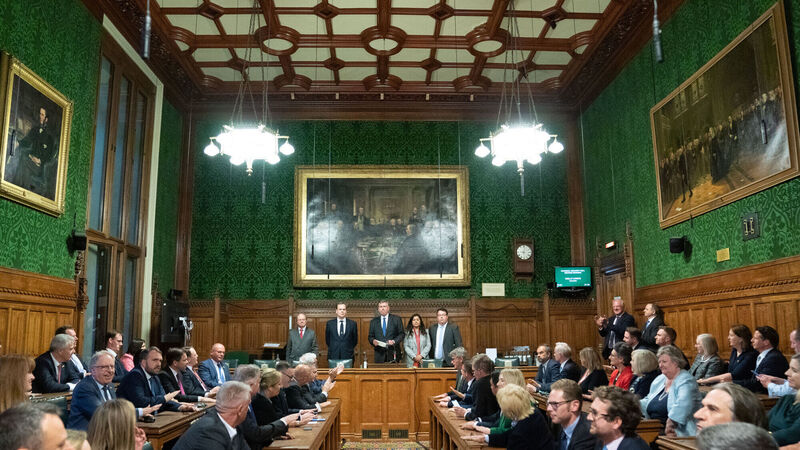Boris Johnson 'not interested in snap elections' after winning confidence vote

Graham Brady announces that Boris Johnson has survived an attempt by Tory MPs to oust him as party leader following a confidence vote in his leadership. Picture: Stefan Rousseau/PA Wire
Boris Johnson has survived an attempt by Tory MPs to oust him in a vote of confidence.
Tory MPs voted by 211 to 148 in the secret ballot in Westminster, Conservative 1922 Committee chairman Graham Brady announced.











